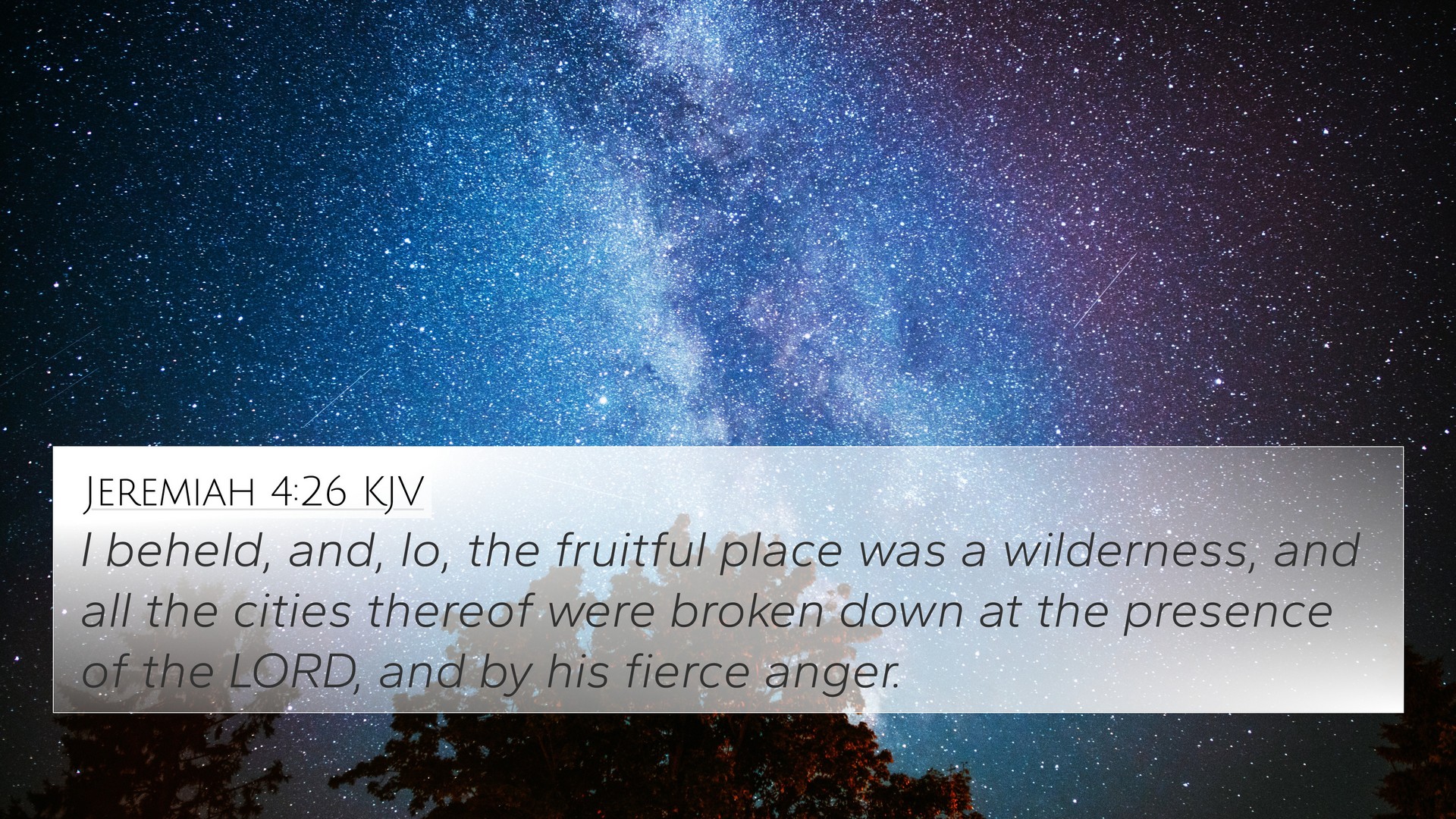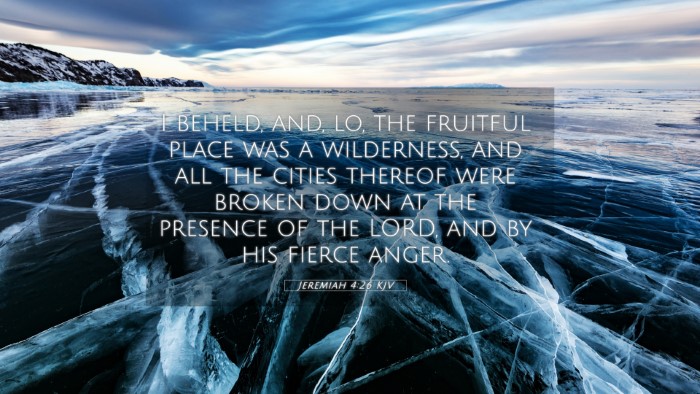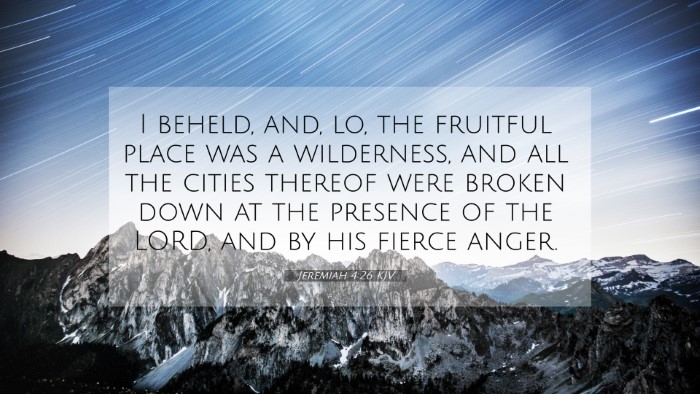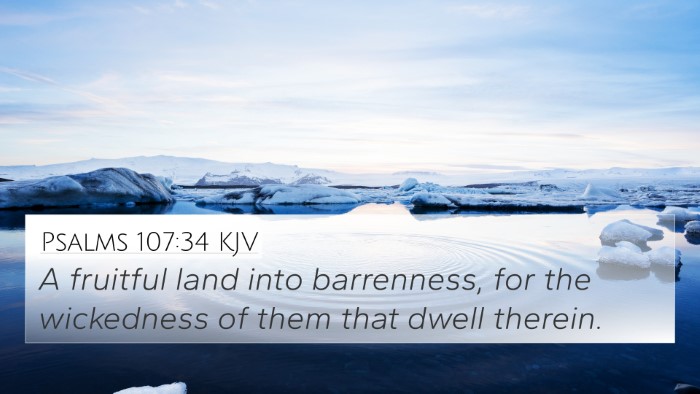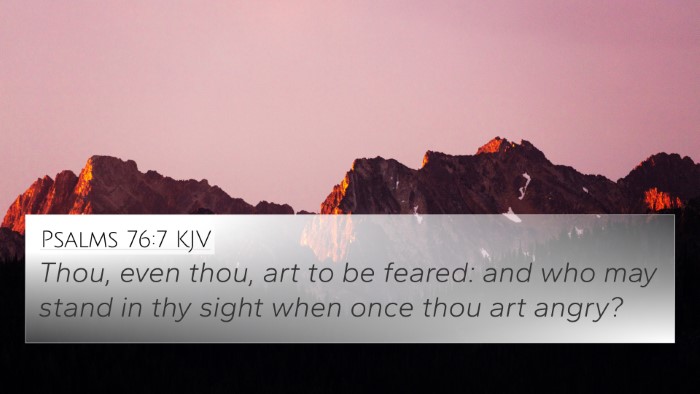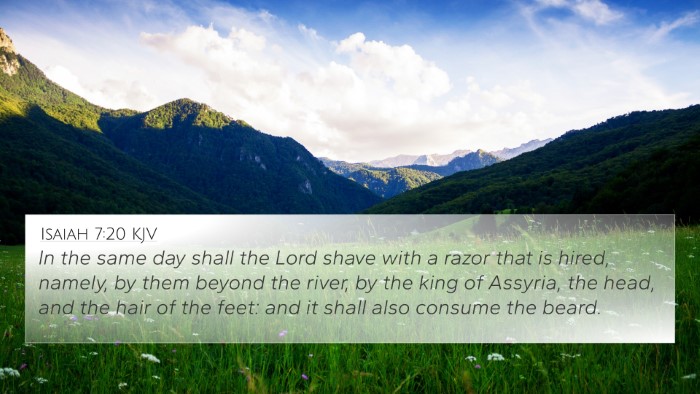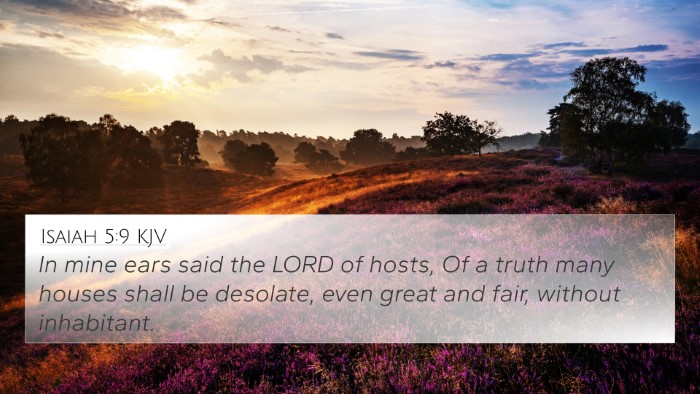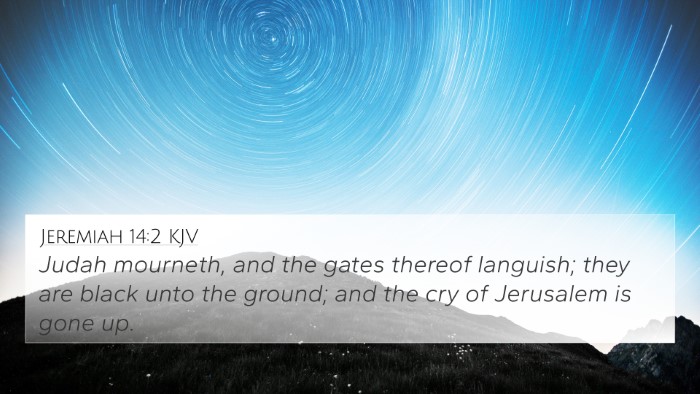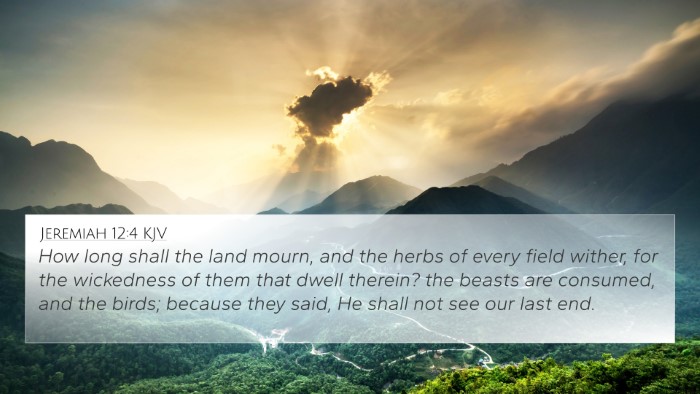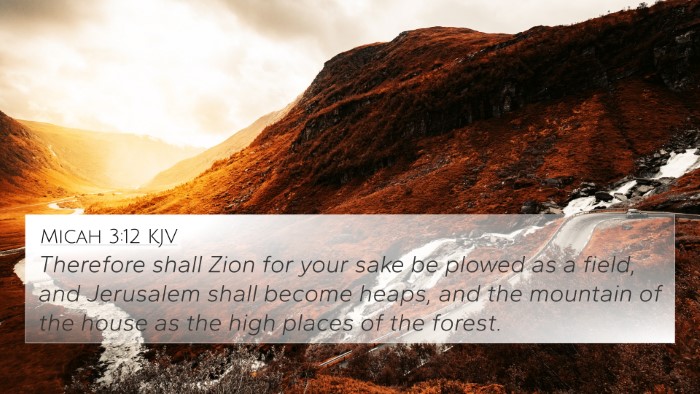Understanding Jeremiah 4:26
Jeremiah 4:26: "I beheld, and, lo, the fruitful place was a wilderness, and all the cities thereof were broken down at the presence of the LORD, and by his fierce anger."
Summary of Meaning
This verse from the book of Jeremiah reveals a stark contrast between what was once a fruitful and thriving land and the desolation brought by God's judgment. The imagery used suggests that the land, once bountiful, has turned into a wilderness due to the divine indignation against sin.
Commentary Insights
The interpretations of this verse can be enhanced by examining commentary from notable theologians such as Matthew Henry, Albert Barnes, and Adam Clarke.
Matthew Henry's Commentary
Matthew Henry emphasizes the idea of divine judgment causing ruin and desolation. He notes that the “fruitful place” symbolizes Judah and its potential for blessing, which has now turned into “a wilderness.” This reflects the consequences of turning away from God and highlights God's anger towards those who rebel against Him.
Albert Barnes' Commentary
Albert Barnes offers a perspective on the fulfillment of God’s warnings through the prophets. Barnes states that the “broken down cities” represent the complete destruction that comes from neglecting God's commands. He connects this desolation to the broader theme of divine justice, where the consequences of sin lead to calamity.
Adam Clarke's Commentary
Adam Clarke expands on the prophetic nature of Jeremiah's message, pointing out that the devastation described is both literal and symbolic. Clarke suggests that the ruins reflect the spiritual state of Israel—abandoned by God and left to face the results of their iniquities. He draws attention to the fierce anger of the Lord as a motive for repentance among the people.
Bible Cross-References
Jeremiah 4:26 is intricately connected to various other biblical verses that share similar themes of judgment, desolation, and the consequences of sin. Below are several significant cross-references:
- Isaiah 5:6: "And I will lay it waste: it shall not be pruned, nor digged; but there shall come up briers and thorns: I will also command the clouds that they rain no rain upon it." This verse parallels Jeremiah's imagery of desolation.
- Ezekiel 33:27-29: Describes the judgment of God upon the land and its inhabitants due to their wickedness.
- Hosea 4:3: "Therefore shall the land mourn, and every one that dwelleth therein shall languish, with the beasts of the field, and with the fowls of heaven; yea, the fishes of the sea also shall be taken away." Here, the devastation mentioned connects to a covenant breach.
- Micah 1:6: "Therefore I will make Samaria as an heap of the field, and as plantings of a vineyard: and I will pour down the stones thereof into the valley, and I will discover the foundations thereof." This destruction emphasizes the theme of divine retribution.
- Revelation 21:1: "And I saw a new heaven and a new earth: for the first heaven and the first earth were passed away; and there was no more sea." A contrast showing the restoration following desolation.
- Jeremiah 14:2: “Judah mourneth, and the gates thereof languish; they are black unto the ground; and the cry of Jerusalem is gone up.” This sheds light on the mourning inherent in judgment.
- Isaiah 24:10: "The city of confusion is broken down: every house is shut up, that no man may come in." Comparing urban desolation across texts.
Thematic Connections
This verse invites a deeper study into several themes prevalent throughout Scripture:
- Divine Judgement: The unerring and powerful hand of God in administering justice.
- Repentance: A call for God's people to turn from their ways in light of impending judgment.
- Restoration: The concurrent theme of renewal following destruction as expressed in God’s ultimate plan for His people.
Understanding Through Cross-Referencing
The study of Jeremiah 4:26 is greatly enriched through cross-referencing Biblical texts. As you engage with these connections between Bible verses, consider the broad implications they hold for understanding God's nature and His will for humanity.
Tools for Cross-Referencing
To effectively explore these themes and their implications, utilizing various Bible reference resources is important. Tools like a Bible concordance and a Bible cross-reference guide can greatly aid in cross-reference Bible study, allowing for a richer understanding of how scripture informs scripture.
Conclusion
The narrative within Jeremiah 4:26 serves as a vivid reminder of the consequences of turning away from God's ways. By utilizing commentary insights and engaging in comparative Bible verse analysis, one can glean deeper spiritual truths and recognize God’s overarching plan for redemption amidst judgment.
